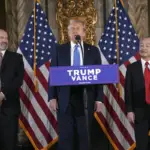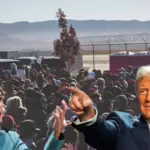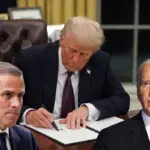Trump’s Qatar Visit Secures $1.2 Trillion in Investments, Boosts U.S. Economy
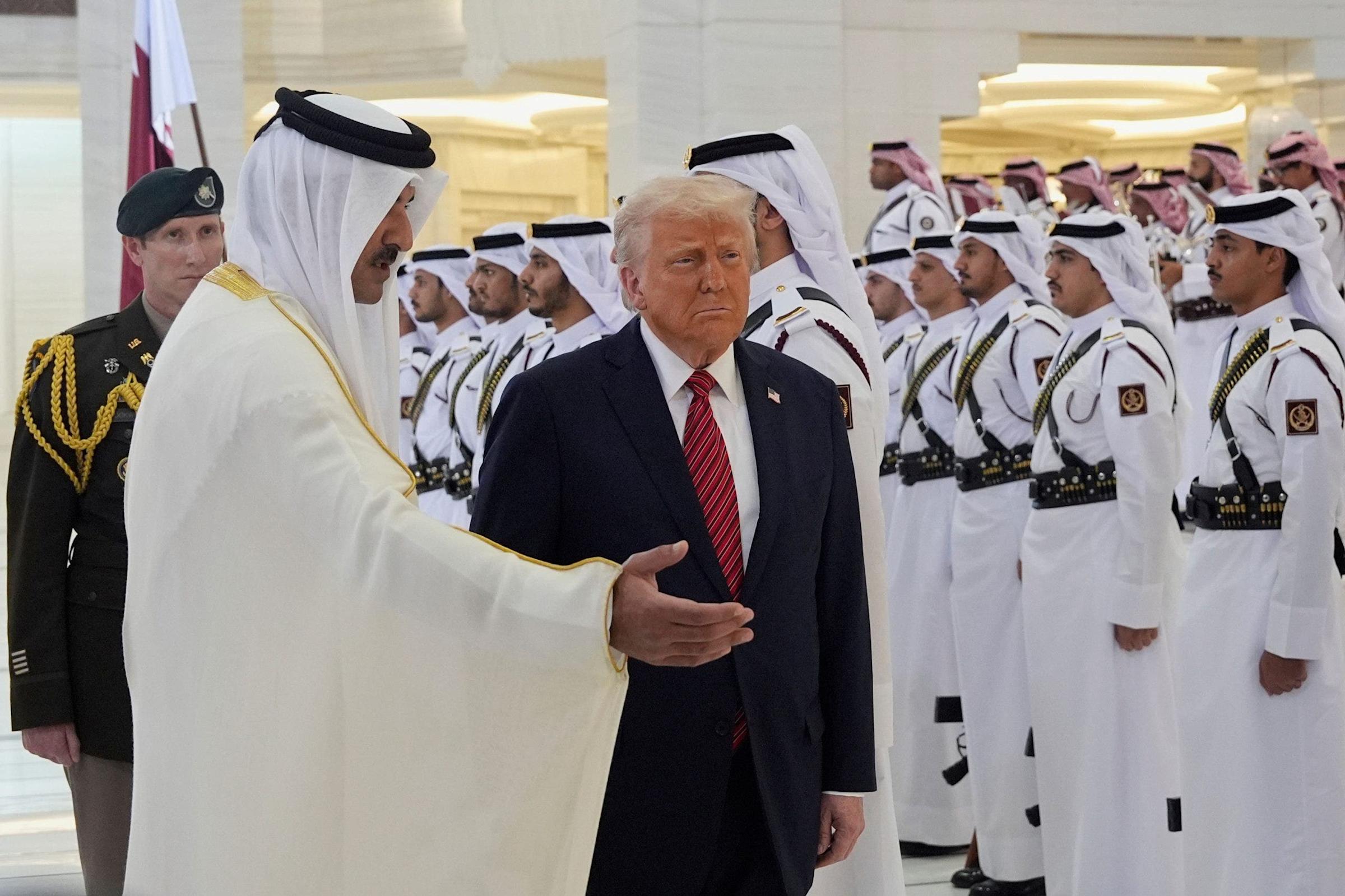
Doha, Qatar – President Donald J. Trump’s visit to Qataron May 14, 2025, part of his first international trip of his second term, culminated in a historic $1.2 trillion economic commitment, marking a significant milestone in U.S.-Qatar relations. The visit, which followed a high-profile stop in Saudi Arabia, underscored Trump’s dealmaking approach, prioritizing massive investments in aviation, defense, energy, and technology to bolster the U.S. economy. Meetings with Qatari Emir Sheikh Tamim bin Hamad Al Thani and a business summit with American CEOs highlighted the strategic and economic alignment between the two nations.
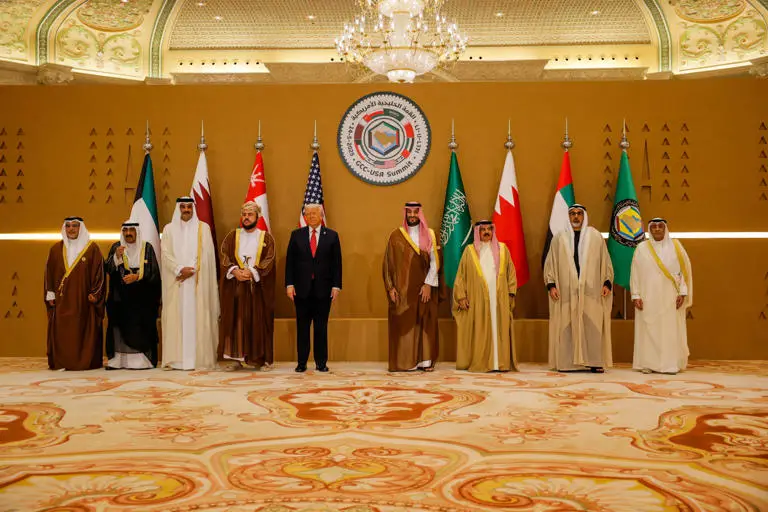
Landmark Economic Deals
The centerpiece of the visit was Qatar’s pledge of $1.2 trillion in investments to the United States, described by the White House as a transformative boost for American industry. Key agreements included:
- Aviation Milestone: A $96 billion deal for 210 Boeing widebody jets, powered by GE Aerospace engines, marked the largest widebody order in Boeing’s history. This contract is expected to create thousands of jobs in U.S. aerospace manufacturing, revitalizing supply chains and reinforcing America’s aviation sector, bolstering manufacturing in states like Washington and Ohio.
- Defense Advancements: Qatar pledged over $38 billion in future defense investments, including a $1 billion contract with Raytheon for counter-drone systems, making Qatar the first international customer for Raytheon’s FS-LIDS technology. Additionally, a $2 billion agreement for MQ-9B drones strengthens U.S.-Qatar security cooperation, enhances regional deterrence, and supports the U.S. industrial base.
- Energy Expansion: An $8.5 billion contract awarded to McDermott International for liquefied natural gas (LNG) and other energy projects will enhance U.S. energy exports and infrastructure development.
- Technology and Innovation: Investments in quantum computing and AI projects, involving companies like Nvidia and AMD, position the U.S. as a global leader in next-generation technologies, fostering innovation and job creation in both nations. Qatar’s approval of Elon Musk’s Starlink operations further strengthens technological ties.
These agreements, part of the $243.5 billion in deals signed, align with Qatar’s National Vision 2030 and President Trump’s vision for revitalizing American manufacturing. “The landmark deals celebrated today will drive innovation and prosperity for generations,” President Trump declared at a state dinner, praising Emir Sheikh Tamim bin Hamad Al Thani’s leadership and commitment to a $3.3 billion annual trade surplus favoring the U.S. over the next 20 years.
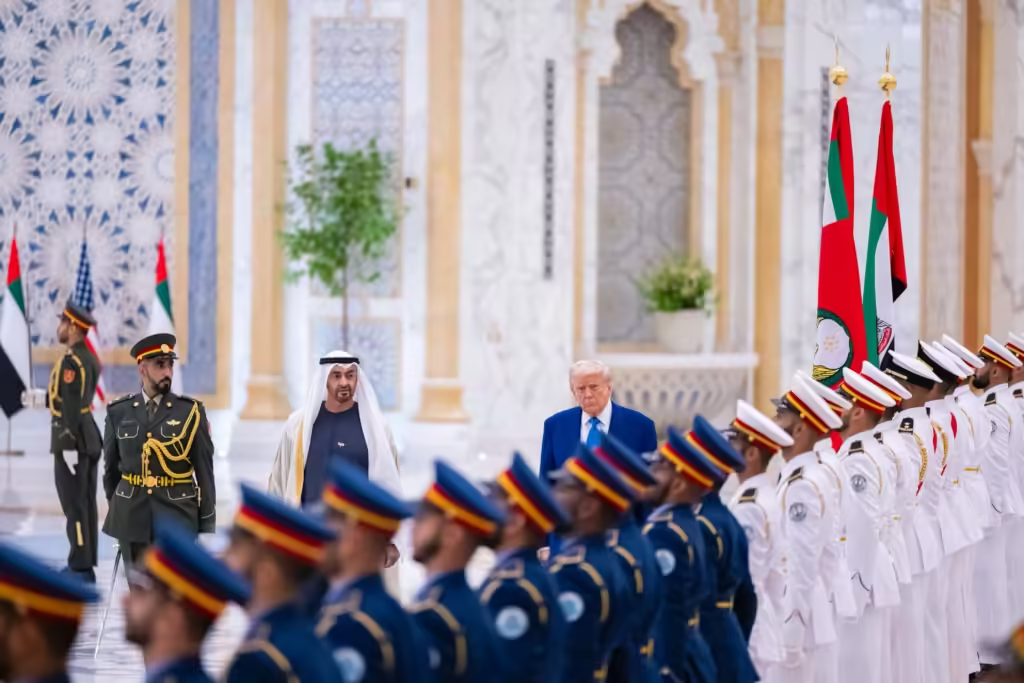
Diplomatic and Strategic Significance
The visit reinforced Qatar’s role as a key U.S. ally in the Gulf, building on its strategic importance as a mediator in regional conflicts and a counterweight to powers like China and Iran. Trump’s discussions with the Qatari Emir emphasized economic collaboration and geopolitical alignment, with Qatar supporting Trump’s broader Middle East strategy. Notably, the visit touched on Trump’s decision to lift U.S. sanctions on Syria, a move backed by Gulf allies to support Syria’s new government under President Ahmed al-Sharaa.
The Doha summit, attended by prominent U.S. business leaders like Elon Musk, Nvidia’s Jensen Huang, and others, showcased the private sector’s role in cementing these partnerships. The warm reception, complete with ceremonial gestures like lavender carpets and camel escorts, underscored Qatar’s enthusiasm for Trump’s leadership, contrasting with cooler welcomes for previous U.S. administrations.
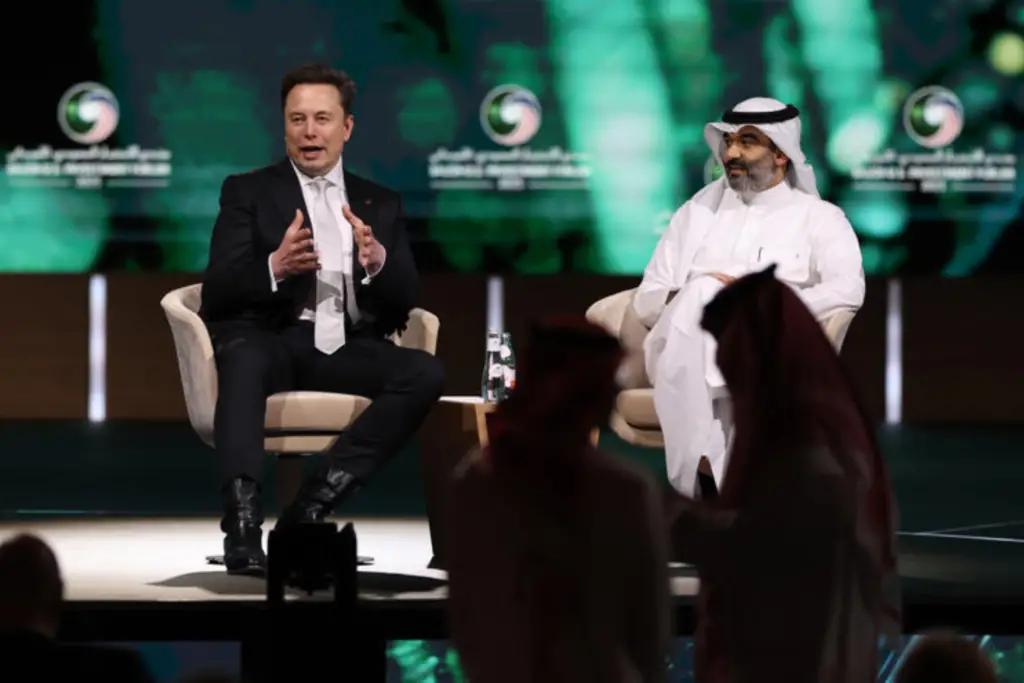
Economic Impact and Geopolitical Context
The $1.2 trillion investment package is poised to reshape the U.S. economy by creating jobs in aerospace, defense, energy, and technology. The Boeing deal, in particular, strengthens U.S. manufacturing, while energy contracts enhance America’s position in global LNG markets. The tech investments align with Trump’s vision of maintaining U.S. dominance in AI and quantum computing, countering China’s technological ambitions.
Combined with the $600 billion secured in Saudi Arabia, the Qatar deals contribute to nearly $2 trillion in Gulf investments during Trump’s regional tour, which also included the UAE. This economic windfall reflects Trump’s transactional diplomacy, prioritizing tangible gains over traditional foreign policy approaches.
Challenges and Criticisms
While the deals have been hailed as a triumph, some analysts question their feasibility, citing Qatar’s financial constraints amid fluctuating oil and gas prices. Ethical concerns also surfaced, particularly regarding a $400 million Qatari jet gifted to Trump, which critics argue raises conflicts of interest given the Trump Organization’s business ties in Qatar. The visit’s focus on economic gains over human rights discussions drew scrutiny from those advocating for a values-based U.S. foreign policy.
A New Chapter for U.S.-Qatar Relations
President Trump’s Qatar visit marks a pivotal moment in U.S.-Gulf relations, with the $1.2 trillion in investments signaling confidence in America’s economic future. As these deals unfold, they promise to create jobs, drive innovation, and strengthen strategic ties, positioning the U.S. as a global economic powerhouse. The visit, blending high-stakes diplomacy with business acumen, underscores Trump’s vision for a prosperous and influential America on the world stage.
Sources:
- President Trump Arrives In Doha, Qatar, On Air Force One https://youtu.be/qyy50ItmTbE?si=2o6dTYhw-F5Y3Im9
- Boeing Wins Largest-Ever Order from Qatar Airways, Trump Says https://youtu.be/eYgB1fmbxVs?si=FkTxsPygCQPOCP8c
- Trump’s State Dinner At Qatar’s Lusail Palace, $160B Boeing Deal, Elon Musk & More! | N18G https://youtu.be/Ye-RQZnQt18?si=c9DWihc7Z9kjEmNu

